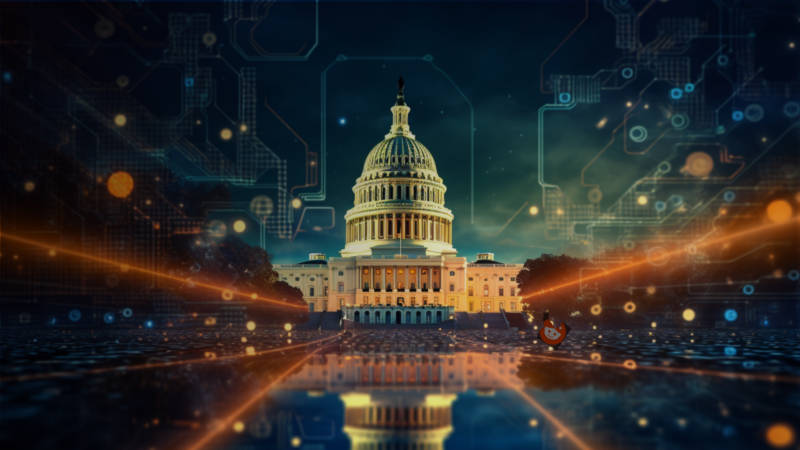The federal government has been reviewing technologies that impact cybersecurity. More recently, it has shown concerns over semiconductor chips and AI. Specifically, some Fact Sheets and Executive Orders issued by the White House seem to focus on keeping the development of these technologies within US borders.
Here we’re taking a look at these and other related notices from the White House that industry professionals should take an interest in.
US Federal Interest in Critical and Emerging Technology
Early in 2022, the US National Science and Technology Council (NTSC) published updates to its list of Critical and Emerging Technologies (CETs). It’s part of a broader effort to track advanced technologies that can potentially pose a threat to US national security.
This list includes semiconductors, microelectronics, and artificial intelligence, which the government has recently been closely examining. It has resulted in a number of Fact Sheets, Updates, and Executive Orders that will shape the manner in which the United States will move forward in the manufacturing and development of these technologies, as well as the countries with which it will import and export.
Semiconductor Chips
Semiconductor chips are an essential part of almost every electronic device, with most being manufactured in Taiwan. There have been many concerns raised over this, mainly related to the relationship between China and Taiwan being somewhat strained.
The US began promoting US innovation in the sector in 2022 with the passage of the CHIPS and Science Act, and more recently, President Biden signed an executive order that restricts US investments in specific technologies for some countries deemed to be a threat to national security.
The listed countries appear to be pursuing long-term strategies that direct, facilitate, or otherwise support advancements in these sensitive products and technologies that are essential to their military, intelligence, cyber-related, and surveillance capabilities.
Artificial Intelligence (AI)
Artificial intelligence (AI) is a hot topic everywhere, including in the federal government’s meetings and discussions. While technology comes with many benefits, there are also some challenges to consider. Some of the primary concerns surround uncontrolled development and the risks it poses to jobs, as well as potential fraud and data privacy infringement.
To curtail these and other risks, the US federal government is launching seven new AI research institutes and investing $140 million in them to ensure the pursuit of ethical, responsible, and trustworthy advances in AI that serve public welfare.
Another policy recently shared surrounds the president’s Office of Management and Budget, which released a guidance draft on AI use by the US government. Additionally, as part of his commitment, President Biden convened seven leading AI firms at the White House, including Amazon, Google, Anthropic, Inflection, Microsoft, OpenAI, and Meta, to announce that the government has secured voluntary commitments from them to help with the next steps toward transparent and secure development of this technology.
Identifying New AI Risks Through Red-Teaming
In a recent post from the Office of Science and Technology, they shared the President’s statement on harnessing the benefits of AI, meaning managing its risks first. The government overall is focused on developing the use of AI in a safe and responsible way so that Americans are protected from discrimination and harm.
Leading AI firms gave their LLMs (large language models) for a first-of-its-kind public “red-teaming” assessment. Thousands of DEF CON 31 attendees participated, including those from community organizations and sixteen community colleges. During the test, the participants prodded and poked the LLMs to try to produce undesirable results or fail in some way, with the end goal of gaining a better understanding of these systems.
They based this event on the risks detailed in the AI Risk Management Framework and the Blueprint for an AI Bill of Rights.
The event’s organizers intend to share the findings with the AI companies that took part in the competition so that those companies can strive to enhance and upgrade their LLMs. They also intend to make the data available to legitimate scholars at a later point in time.
CHIPS and Science Act 2022
In 2022, the US decided that, in order to move technology forward, it would stop depending on foreign partners and instead try to inspire the business world. The CHIPS and Science Act was signed in August to help the United States advance and fund technology in these important areas. It thinks that because of these things, the US will get a lot out of it.
- innovation
- Research and Development (R&D)
- understanding that this is the way to improve the human condition
- create and discover possibilities
- improve the way the US does business,
- increase accuracy, effectiveness, efficiency, and speed
According to the Vice President at a round table discussion that followed the signing of the Act, the US has clearly demonstrated its commitment with the passage and signing of the Chips and Science Act.
US Investments Restricted in China Technology Sectors
The President of the United States, Joe Biden, signed an executive order this August that prohibits US investments in high-tech industries in China. These industries include artificial intelligence, quantum computing, semiconductors, and microelectronics. Additionally, this order prohibits venture capital and private equity investments going to sectors that the US president says will help China gain a military advantage through the development of these technologies.
Along with financial flows, the order covers non-financial benefits that Chinese companies may gain, such as access to markets, management know-how, and links to financial networks. The People’s Republic of China, as well as the portions of Macao and Hong Kong that are under its control, are also included in the order.
Several departments and agencies, including the Commerce Department and the Treasury, have been tasked with drafting regulations that would require venture capital and private equity firms to notify the government of any outbound investments and that would specify the prohibited investments and technologies.
The executive order was derived from a congressional order that was inserted into the 2023 spending bill. In it, the Treasury and Commerce departments were requested to study ways to track US financial flows into technology sectors in China and other countries.


